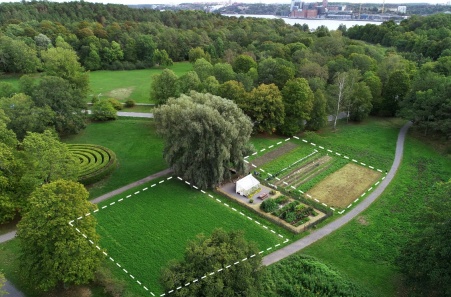2000m2 Baltic - Co-creating food culture and innovation
2000m2 Baltic concept is a hands-on learning initiative aimed at creating sustainable, regenerative thinking and practice in farming, food production and consumption. It provides opportunities to learn about agricultural impact on the BSR in a long-term perspective. We develop networks between research, farms, chefs, consumers, schools, and local and regional administrations, taking steps to shape new food cultures and transform food systems from farm to fork.
2000 m2 Toolbox
Within the 2000m2 Baltic project we have developed a toolbox with illustrative and practical materials. It can be used by anyone who would like to explore 2000m2 from different angles, from farm to fork. The material ranges from conceptual descriptions, in-depth tools for calculations and further readings, to very hands on recipes, crop rotation plans, outdoor kitchen manuals and farm examples. It is available in English and partly also in Polish, Estonian and Swedish. All tools can be downloaded by clicking the links below.
You can also find out more about our final webinar Transforming food cultures – Tasting 2000 m2 by following this link.
Concept

Farm Examples

Watch YouTube clip: Juchowo Farm
Crop Rotation Plan

Recipes

Outdoor Kitchens

Watch Youtube clip: 2000 m2 "Table to farm Rosendal"
Calculation Tool

Wheel of Fortune

Posters
Litterature
In BERAS and BERAS Implementation, assessments of farms around Baltic Sea showed that a transformation to ecological recycling agriculture with a shift in consumer behavior could contribute to climate mitigation and decreased nutrient leakage to Baltic Sea. On a global scale, the transformation to healthy, sustainable diets described in the recent Lancet Commission Report Food in the Anthropocene requires significant dietary shifts. These shifts include how our food is produced, food waste reduction and changes in diet.
Based on BERAS and Lancet Commission recommendations, 2000m2 Baltic offers a platform for transformative learning, where different stakeholders can experience the concept of recycling agriculture and develop new food cultures within planetary boundaries. We use a co-creative, bottom-up approach to raise awareness of food systems’ environmental impacts and to empower stakeholders.
Researchers, communicators and stakeholders within the food sector are involved both in formulating the challenges and future solutions to the problems of the current food system. The project activities aim at building local/regional networks of cross-sectoral partners that are committed to developing the 2000 m2 concept in relation to local needs and ambitions. In that sense, the project has a bottom-up perspective, aiming at empowering stakeholders at different level to take steps towards a more viable and healthy food system.
Key project concepts are co-creation, innovation, food culture, transformative learning process with an emphasis on a positive, encouraging message.
Project partners:
Skillebyholm Biodynamic Education Centre (Stiftelsen Skillebyholm), Sverige
Research Centre of Organic Farming of Estonian University of Life Sciences (Eesti Maaülikooli Mahekeskus), Estonia
Estonian Organic Farming Foundation, (EOFF); Estonia
Stanisław Karłowski-Foundation/FSK (Fundacja imienia Stanisława Karłowskiego), Poland
Rosendal's Garden, Sweden


